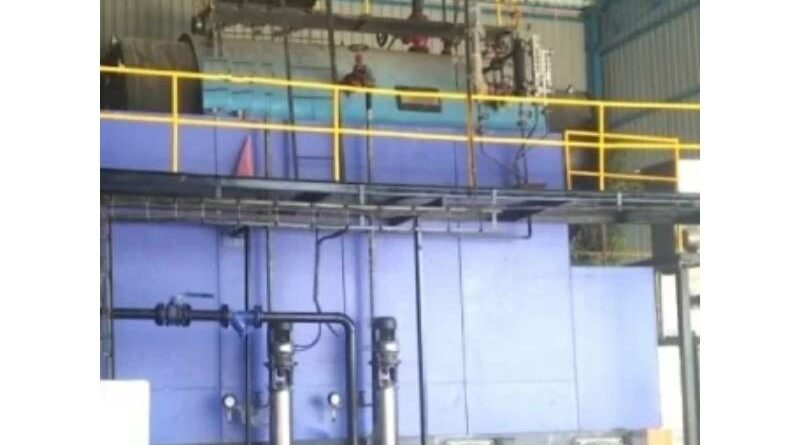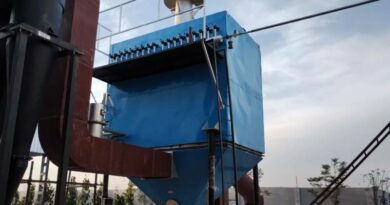How Waste Heat Fired Boilers Can Cut Your Energy Costs?
In today’s industrial landscape, energy efficiency is a growing priority. With energy costs on the rise and businesses seeking ways to minimize their carbon footprints, companies are increasingly turning to alternative solutions to meet their heating and energy needs. One such solution is the use of waste heat fired boilers. These systems are gaining popularity due to their ability to recycle heat that would otherwise be wasted and put it to good use, significantly cutting energy costs.
This article explores how waste heat fired boilers can help businesses reduce energy costs, improve operational efficiency, and contribute to sustainability. We’ll delve into how they work, their benefits, and how businesses can integrate them into their energy strategy.
What is a Waste Heat Fired Boiler?
A waste heat fired boiler (also known as a waste heat recovery boiler) is designed to capture and utilize excess heat from industrial processes that would otherwise be released into the environment. These boilers convert waste heat into usable energy, typically in the form of steam or hot water, which can be used to generate electricity, heat buildings, or power industrial processes.
In many industries, processes like manufacturing, refining, and chemical production generate significant amounts of heat that cannot be used directly for production purposes. Instead of allowing this energy to escape into the atmosphere, waste heat fired boilers recover it and convert it into useful energy. This process not only saves money but also helps to reduce the environmental impact of a business by lowering its carbon footprint.

How Does Waste Heat Fired Boilers Work?
The basic principle behind waste heat fired boilers is simple: capture excess heat from industrial processes and use it to produce steam or hot water. Here’s a simplified step-by-step breakdown of how they work:
- Heat Collection: Waste heat is captured from industrial exhaust gases, flue gases, or other high-temperature streams generated during operations like combustion, chemical reactions, or mechanical processes.
- Heat Transfer: The collected heat is then transferred to a heat exchanger, which is typically a series of tubes or plates that allow the heat to be transferred efficiently from the exhaust gases to water or another fluid.
- Steam Production: The heated fluid (usually water) is then converted into steam, which can be used for various industrial processes or to drive turbines for electricity generation.
- Reused Energy: The steam produced can be sent to an existing boiler or heat exchanger to generate more steam for the system, effectively creating a continuous cycle of energy reuse.
- Exhaust Gas Emission: After the heat is recovered, the cooler exhaust gases are released into the atmosphere, but at a much lower temperature, reducing the environmental impact.
Benefits of Waste Heat Fired Boilers
- Significant Cost Savings: One of the most compelling reasons to invest in waste heat fired boilers is the substantial reduction in energy costs. By recovering waste heat, businesses can reduce their dependence on purchased fuel for heating, which can lead to significant savings over time. In some cases, waste heat can replace a substantial portion of the energy needed for heating or electricity generation.
- Improved Energy Efficiency: Waste heat fired boilers help to enhance the overall energy efficiency of industrial processes. By capturing and utilizing heat that would otherwise be lost, businesses can reduce the energy consumed during operations, making the entire process more efficient. This can also reduce the need for additional power generation or heating equipment.
- Environmental Benefits: By recycling waste heat, businesses can reduce their carbon emissions and minimize their environmental impact. Waste heat recovery systems contribute to sustainability goals by using existing energy more effectively and reducing the need for external energy sources. This not only helps businesses meet environmental regulations but also promotes corporate social responsibility.
- Extended Equipment Life: Waste heat fired boilers can extend the life of other equipment in your facility. Since they reduce the need for external heating systems, businesses may require less maintenance on their primary boilers, turbines, and heating equipment, lowering the frequency of repairs and replacements.
- Reduced Greenhouse Gas Emissions: By recovering and reusing waste heat, industries can reduce their overall energy consumption and cut down on greenhouse gas emissions. This not only helps businesses meet sustainability targets but also positions them as environmentally responsible, which is increasingly important to consumers and stakeholders.
- Compliance with Regulations: As governments around the world implement stricter regulations on emissions and energy consumption, waste heat fired boilers can help businesses stay compliant. By reducing their reliance on traditional fuel sources and minimizing waste, companies can avoid potential fines and stay ahead of regulations.
Industries That Benefit Most from Waste Heat Fired Boilers
Certain industries are better suited for waste heat recovery than others. These industries typically generate large amounts of excess heat during their manufacturing processes and stand to gain the most from waste heat fired boilers. Some of the industries that benefit from this technology include:
- Manufacturing: Heavy industries such as steel production, cement manufacturing, and glass production generate a lot of excess heat. Waste heat fired boilers can capture this heat to produce steam for power generation or other processes, significantly lowering energy costs.
- Petrochemical and Chemical Industries: Chemical and petrochemical plants involve high-temperature reactions and combustion processes, which result in large quantities of waste heat. Waste heat fired boilers in these industries can recover this heat and reduce the need for external energy sources.
- Power Generation: Power plants often operate at high temperatures and produce waste heat during electricity generation. Waste heat fired boilers can help recover this energy and improve the efficiency of the plant, contributing to lower operating costs.
- Food Processing: The food industry also generates waste heat through various processes like drying, cooking, and sterilization. Waste heat fired boilers can recycle this energy to power other parts of the operation, such as heating or steam generation.
- Pulp and Paper Industry: The pulp and paper industry involves processes like drying and cooking that generate substantial amounts of heat. By using waste heat fired boilers, companies in this sector can recover this heat for reuse in various production stages.
How to Integrate Waste Heat Fired Boilers into Your Energy Strategy?
Integrating waste heat fired boilers into your energy strategy can yield substantial savings and efficiency improvements. Here are a few steps to consider:
- Energy Audit: Conduct a thorough energy audit to identify areas where waste heat is being lost and determine whether waste heat recovery is a viable solution for your operations.
- Select the Right Boiler: Choose a waste heat fired boiler that is appropriately sized for your industrial processes. It’s essential to match the capacity of the boiler with the amount of waste heat generated.
- Monitor and Optimize: Regularly monitor the performance of your waste heat fired boiler to ensure it is operating efficiently. Over time, adjustments may be needed to optimize performance and maximize savings.
- Work with Experts: Partner with experts in waste heat recovery to design and install a system that meets your specific needs. These professionals can help ensure the system is integrated seamlessly into your existing infrastructure.
Conclusion
Waste heat fired boilers are an excellent solution for businesses looking to cut their energy costs and improve energy efficiency. By recovering waste heat and converting it into useful energy, companies can save on fuel costs, reduce their carbon footprint, and enhance their overall operational efficiency. As industries continue to prioritize sustainability and energy efficiency, waste heat recovery systems will play an increasingly important role in reducing energy consumption and improving profitability. Investing in waste heat fired boilers can provide long-term benefits for both businesses and the environment.




